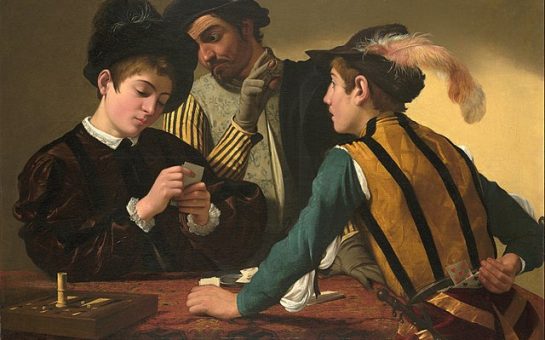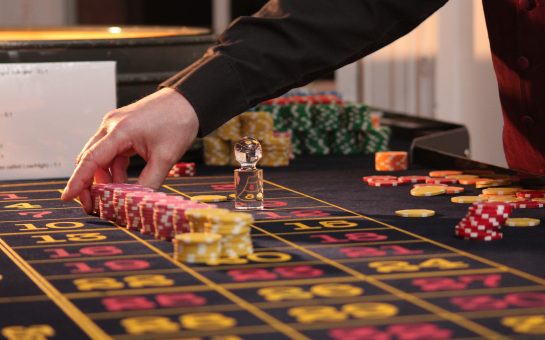It’s no secret that gambling in the UK is a much-loved pastime.
In fact, it generates over £14 billion each year via the almost 150 physical casinos around the country and the many online casinos that players log onto each day.
Manchester, one of the most popular and well-known cities in England, also has a prosperous gambling industry.
The city is home to seven large brick-and-mortar casinos and is the hub of many players who log online to gamble.
However, while gambling is widely embraced in both the country and the city, this was not always the case. The introduction of casinos and online casinos took many years to achieve.
So, let’s delve into the history of gambling in Manchester and how changes in the law and the advent of online casinos—like those found at casinosource.co.uk—have helped grow this industry in the city.
Gambling before the 20th century
According to records, gambling may have begun in Manchester and the rest of the UK as early as 1550.
However, it was reserved for the upper class and consisted only of card and dice games, though lotteries also made an appearance during this time.
However, attitudes changed by the 1660s, and gambling was seen as something done only by commoners.
Consequently, gambling as we know it today was outlawed throughout the entire country during both the 18th and 19th centuries.
The only legal forms were horse race betting, state lotteries, and greyhound race betting.
While gambling using dice and cards retained its popularity during these times, people were careful not to be caught placing wagers publicly, and the police often apprehended people for gambling.
Gambling in the 20th century
When the 20th century rolled around, gambling had become more popular than ever.
This, alongside many petitions in favour of legalising it, made it more challenging for the state to regulate.
Therefore, the government created the Betting and Gaming Bill of 1960 which legalised gambling and the operation of private casinos.
While there is no record of when the first casino came to Manchester under this act, it seems the first casino opened sometime in the late 90s or early 2000s.
And judging by the significant increase in gambling activity in the city, the casino movement definitely accelerated.
Gambling in the 21st century
In the early 21st century, gambling became commonplace throughout the country.
This led to the Gambling Act of 2005, which set the rules for gambling in the future.
The regulation was necessary because of the influx of multiple online gambling platforms, many of which have a solid player base in Manchester.
As the century progressed, gambling also increased.
This has led to an increase in revenue generated by the industry from around £770 million in 2010 to over £14 billion in 2022.
Gambling in Manchester
While it is unclear when the first casino appeared in Manchester, the fact that numerous fantastic casinos are located throughout the city is evidence that gambling is a popular pastime among residents.
The most popular casinos include Manchester 235, Grosvenor Casino Soames, Grosvenor Casino Didsbury, and Genting Club.
Each of these offers multiple forms of entertainment, including shows and concerts, and pubs and restaurants.
Of the casinos mentioned above, the most popular is Manchester 235.
This casino features multiple gaming tables, an Icon VIP bar, and a James Martin restaurant, and it is host to the World Series of Poker in Europe.
These casinos and people’s love of placing wagers have led to a robust local gambling scene and helped contribute to the rise in online gambling in the UK as a whole.
Gambling has become so popular in the city that, in 2007, Manchester won the bid for the city that would host a mega-casino.
The idea of the mega-casino was included in the 2005 Gambling Act, which made provision for large casino complexes titled Regional Casinos.
These are the largest casino complexes allowed by the law in the UK.
This mega (or super) casino was set to be built in a Vegas style that would have become a hub of gaming and entertainment.
As part of the plan for the mega-casino, the casino complex would house multiple casinos, restaurants, and resorts.
Each of these resorts would host additional entertainment offerings—much like the famous Las Vegas Strip in Nevada, USA.
These would make the destination popular amongst families and groups of friends rather than appealing only to diehard punters.
Part of the additional justification for developing this mega-casino was the job creation that it would bring to Manchester.
The project was estimated to create around 3,500 jobs and bring in millions of pounds worth of investment into the city.
However, shortly after the awarding of the project to the city, there were multiple streams of backlash against the idea.
In under two months, the House of Lords in the UK rejected the final order that would have allowed the project to commence.
The future of gambling in Manchester
While the mega-casino may have made gambling an even more popular activity, the failure of the project has by no means stunted the industry.
In fact, gambling has continued to grow since the project was scrapped, including through the COVID-19 pandemic.
This is primarily thanks to online casinos’ continued innovation and accessibility within the country and city.
These sites have allowed players to wager on their choice of game at almost any time and from the comfort of their own homes.
The UK is currently looking at introducing more laws, such as instituting affordability checks on players, to regulate online gambling.
However, none of these laws seems like it will be passed any time soon.




